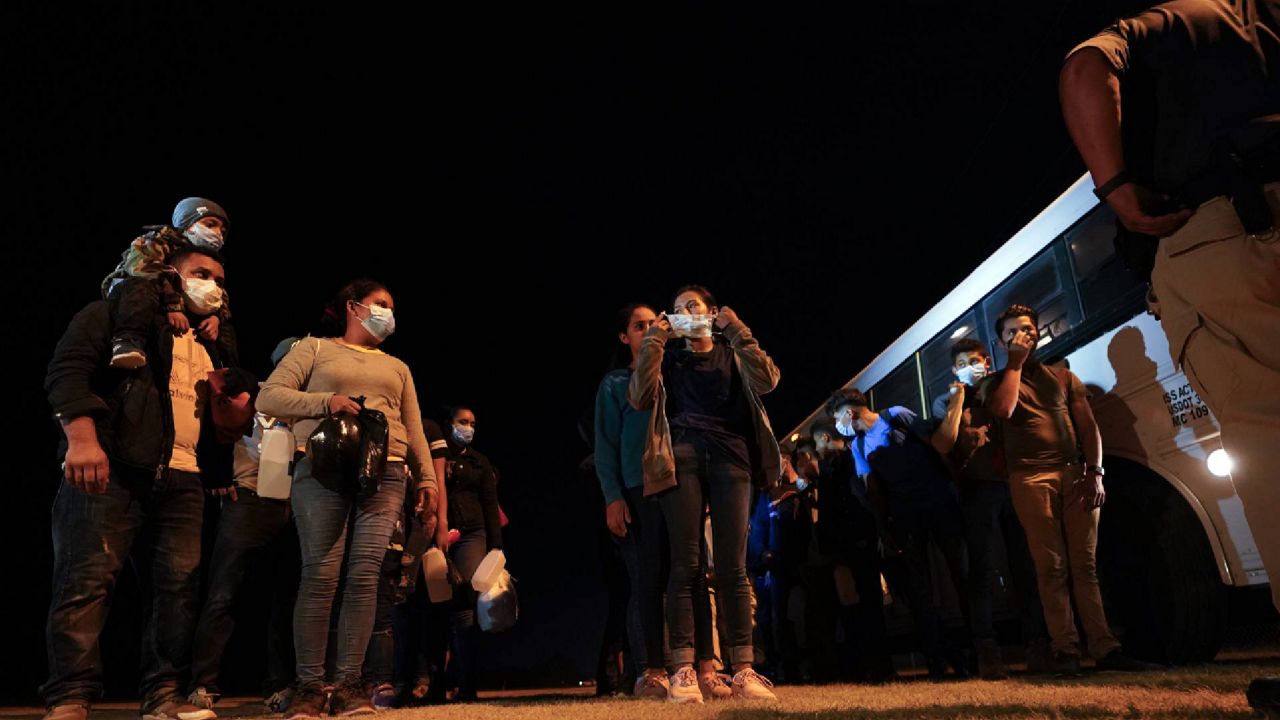U.S. Customs and Border Protection encountered more than 178,000 people at the southwest border in April, a slight uptick from March and another two-decade record, the agency announced Tuesday.
The vast majority — more than 111,000 last month, most single adults — are being turned away under a public health order, while the administration has made an exception for children who cross alone, families with young children and some vulnerable asylum seekers.
Border agents came across fewer unaccompanied children at the border, with about 17,000 encountered in April compared to nearly 19,000 the previous month.
While the numbers reported last month represent crossings not seen since the year 2000, the Biden administration continues to use a health order put in place by former president Donald Trump, called Title 42, to expel most people.
The use of the order has created confusion among migrants who see the newer administration as more friendly to immigration and also sometimes-dangerous situations for people turned away to Mexico.
Homeland Security officials have blamed the dangers on smugglers who make false promises to migrants about the journey. The department has launched an operation to target smuggling organizations, called Operation Sentinel.
“Day after day, CBP rescues migrants abandoned in harsh terrain, left for dead with no food or water,” said acting CBP Commissioner Troy Miller in a statement. “CBP is committed to enhancing the security of the U.S. border and helping save the lives of vulnerable migrants.”
In the meantime, the U.S. has reduced the number of children kept in border patrol facilities, which are not designed for children or long term care, instead working to move them to emergency shelters run by the Department of Health and Human Services.
As of Monday, there were more than 20,000 children in HHS shelters and about 450 in Border Patrol custody, down from more than 5,000 last month.
Still, there are serious concerns about the shelters propped up to care for unaccompanied children inside the U.S., including overcrowding and a lack of basic services due to little legal oversight.



